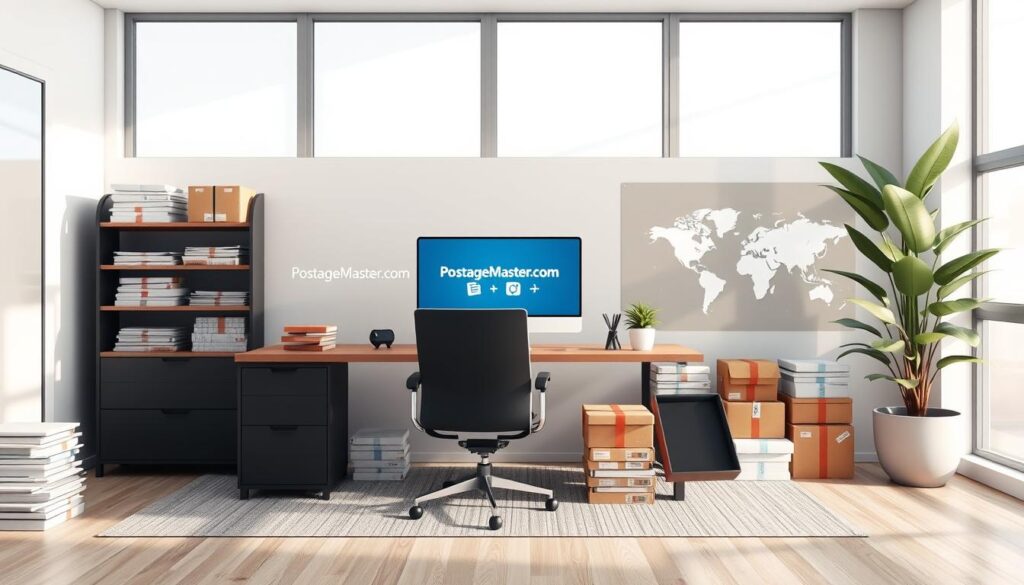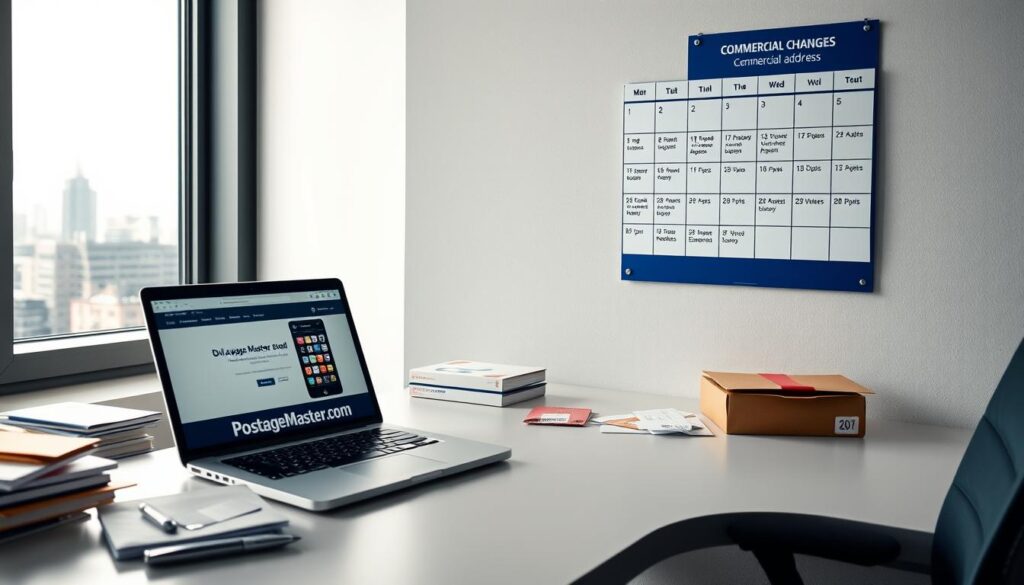Getting a driver’s licence in the UK can be hard if you don’t have a home address. The DVLA has new rules about addresses. But, can you use a virtual address for your UK driver’s licence?
Key Takeaways
- DVLA now requires the use of a driver’s actual residential address on driving licences and V5C documents
- Virtual or commercial addresses are explicitly prohibited, posing challenges for those without a fixed postal address
- Drivers must inform DVLA of any address changes, with possible fines for not doing so
- Some people might find other address solutions, but they need the right papers
- It’s important to know what the DVLA says and look for legal ways to meet their rules
Understanding DVLA Address Requirements
In the UK, drivers must know the DVLA’s address rules. The DVLA wants your real home address for your driving licence. This is for official letters and legal notices.
The DVLA wants to reach the vehicle’s owner easily. They might let you use a relative’s or doctor’s address in special cases. But, you’ll need to show proof. This helps the DVLA and police contact you when needed.
Don’t try to use a virtual or business address for your driving licence. The DVLA wants your real home address. This keeps all driver info up to date in the UK.
“The DVLA requires drivers to provide their actual residential address for driving licences, as this helps the agency, police, and other authorities maintain contact with vehicle keepers.”
Make sure to give your residential address for driving licence needs. This follows the DVLA’s address requirements. It helps you get important messages from the DVLA on time.
Can I Use a Virtual Address for my Driver’s Licence (UK)
The DVLA in the UK doesn’t let you use virtual mailbox services for driver’s licenses. They need a real, home address. This is hard for people without a fixed home or who move a lot.
Virtual addresses are popular for work, but the DVLA says no. They worry about checking addresses and misuse. This is why they stick to real addresses.
Even though the DVLA is strict, there are other acceptable virtual address options. These can be used for business and personal mail. They offer flexibility and a professional address in the UK.
| Acceptable Address Options for DVLA | Not Accepted by DVLA |
|---|---|
|
|
Make sure your driver’s license address is correct and meets DVLA rules. This avoids problems later. Knowing DVLA’s rules and looking for other options helps find the right address.
“The DVLA’s stance on virtual addresses for driver’s licenses reflects their commitment to address verification and preventing possible misuse. It also shows the need for more flexible and inclusive policies to meet the changing needs of today’s workforce.”
Virtual Address Services in the UK
In the UK, virtual address services have many benefits. They save money and improve your professional look. You get a real street address for mail and packages.
But, the DVLA doesn’t accept virtual addresses for driving licence registration. This is a big rule to know.
The Hoxton Mix is a well-known virtual address service in the UK. They offer fancy London addresses. But, these addresses can’t be used for DVLA needs.
It’s key to pick a virtual address service that fits your needs. This is very important for official documents like a driving licence.
About 1.2 million people in the UK live without a fixed home. This includes digital nomads and those in motorhomes. For them, a virtual mailing address or mailbox service for driving licence could be helpful. But, the DVLA’s rules might be a problem.
The need for flexible living and work is growing. It’s interesting to see if the DVLA will change its rules. For now, it’s important to find other ways to meet the DVLA’s needs for driver’s licence registration.

“The Hoxton Mix offers prestigious London addresses, but these cannot be used for DVLA purposes under current regulations.”
Alternative Address Options for Driver’s Licence
Getting a driver’s licence in the UK is tough without a fixed home address. But, the DVLA knows some people need different addresses for their licence. This is for special cases.
You might use a relative’s or friend’s address if they say it’s okay. You’ll need to show proof of your bond, like bills or bank statements. Remember, using someone’s address without asking is wrong and can cause problems.
Another choice is a doctor’s office or clinic address. This is for those without a stable home or family support. You must get permission from the healthcare provider and show you’re registered there.
- Using the address of a relative or friend with their permission and proof of the relationship
- Utilizing the address of a healthcare provider, such as a doctor’s office or clinic, with written permission
- Exploring other non-traditional options, such as a P.O. box or a virtual address service, that may be accepted by the DVLA in exceptional circumstances
The DVLA wants to make sure drivers can be reached for important messages. They might ask for more proof or check your address. Always talk to the DVLA and give them what they need.
“The DVLA’s policy aims to ensure that drivers can be contacted reliably for official communications.”
Living Without a Fixed Address: Challenges and Solutions
Living a nomadic lifestyle in the UK can make getting a driving licence hard. The DVLA policy is tough for those without a fixed home. This includes digital nomads, motorhome dwellers, and those in static caravans. About 1.2 million people in the UK face this problem.
Some people use friends’ or relatives’ addresses. But, this can cause missed DVLA messages and legal troubles. It also makes banking, insurance, and utilities hard to manage.
But, there are other ways to get an address. Vanpost offers fixed addresses for mail and forwarding. The Poste Restante service lets you pick up mail at any post office. This is great for those without a permanent home.
Even with big challenges, it’s possible to keep a valid driving licence. Creative solutions and using the right resources help. This way, people can keep enjoying their freedom and flexibility.
DVLA’s Current Stance on Commercial Addresses
The Driver and Vehicle Licensing Agency (DVLA) in the UK has a clear stance on using commercial addresses for driver’s license registration. They say no to using any commercially provided address, like virtual offices, for this purpose. This is stated in their policy.
The DVLA wants to make sure drivers can be reached at home. They think it’s important for clear communication and safety. This policy helps keep things transparent and fair.
But, some people think this rule is unfair. They say it’s hard for those without a fixed address. Others worry about privacy and security, as some might not want to share their home address.
“The DVLA’s policy on commercial addresses for driver’s licenses is a complex issue that raises valid concerns about accessibility and privacy. As our society evolves, it’s important that regulatory bodies like the DVLA adapt their policies to be more inclusive and responsive to the diverse needs of the public.”
Despite the criticism, the DVLA sticks to their DVLA policy commercial addresses and virtual office DVLA restrictions. They want to follow the law and keep the driver’s license system strong. But, the debate goes on, with many asking the DVLA to think about more flexible rules for everyone.

Impact on Different Communities
The DVLA’s address policy affects many communities in the UK. Nomadic groups, like the gypsy traveler community, face big challenges. They often don’t have a fixed address, which is needed for driving licenses.
Digital nomads also have trouble with the fixed address rule. They work from anywhere and don’t have a traditional home. This makes it hard for them to follow the DVLA’s rules. It seems unfair to them.
| Community | Impact of DVLA Address Policy | Potential Solutions |
|---|---|---|
| Gypsy Traveler Community | Difficulty maintaining valid driving licenses due to lack of permanent fixed address |
|
| Digital Nomads | Struggle to comply with fixed address requirement while frequently traveling |
|
The DVLA needs to change its policies for the digital age. Working with different groups can help. This way, everyone can keep their driving rights, no matter where they live.
Legal Implications of Address Misrepresentation
Misrepresenting your address on a UK driver’s license can lead to big trouble. Using an old address or someone else’s without permission is against the law. This can cause you to miss important messages, like speeding fines, which can grow into bigger legal problems.
For instance, Lin Goode, the editor of CanalsOnline Magazine, got a £1,200 fine. It was because he missed a £90 speeding ticket sent to an old address. The DVLA has strict rules to stop such problems and keep the roads safe from address fraud UK and DVLA address verification issues.
Giving the DVLA false info can lead to fines and even losing your driver’s license. It’s very important to keep your address current and only use addresses you’re allowed to. Trying to trick the DVLA can lead to serious legal trouble.
| Offense | Potential Consequences |
|---|---|
| Using an outdated or unauthorized address on a driver’s license |
|
| Providing false information to the DVLA |
|
It’s very important to have the right and current address on your UK driver’s license. Following the DVLA’s rules helps keep your driving rights safe. It also helps protect you from fraud or identity theft.
“Using an outdated address or someone else’s address without permission is considered illegal.”
Acceptable Address Solutions for DVLA
The DVLA mainly wants home addresses for driving licenses. But, they also accept some other addresses in special cases. This is a big problem for about 1.2 million people in the UK without a fixed home.
These people include digital nomads, those living in motorhomes, and those in static caravans. They need a better way to get a driving license.
There’s a plan to let the DVLA use virtual address services. These services could meet the DVLA’s needs and help people with unusual homes. They could make sure these addresses are safe and real.
The UK government needs to think about how people live. They should look into using virtual addresses for driving licenses. This way, everyone can get a license, no matter where they live.
